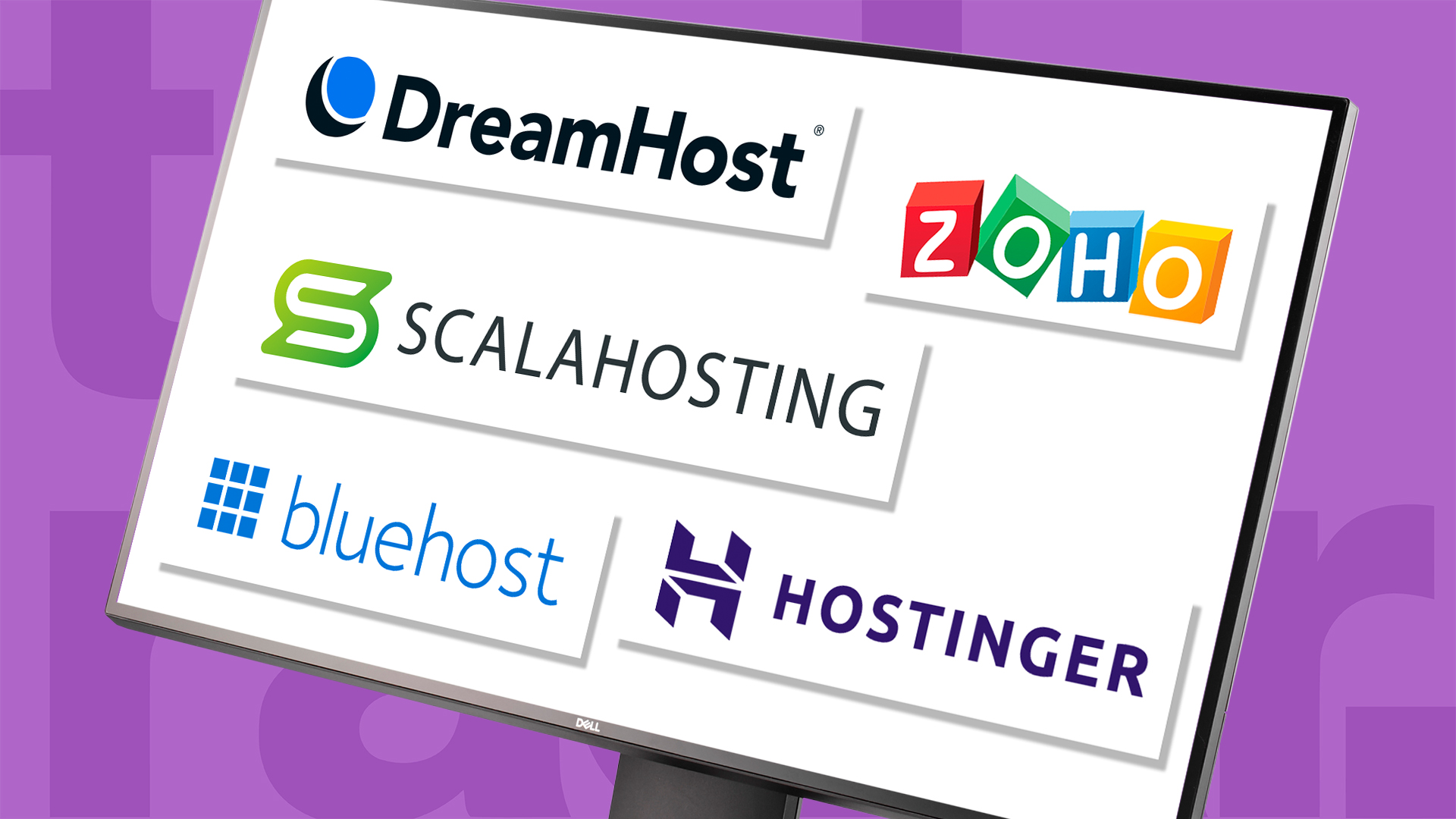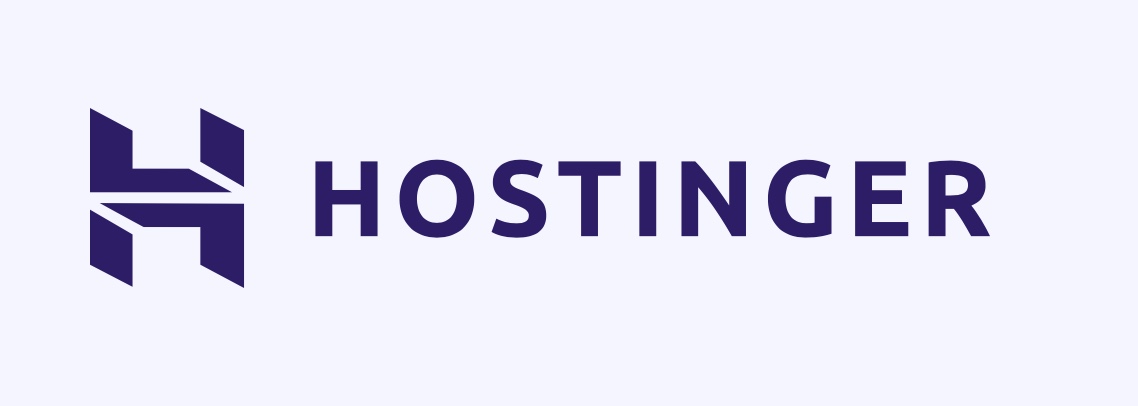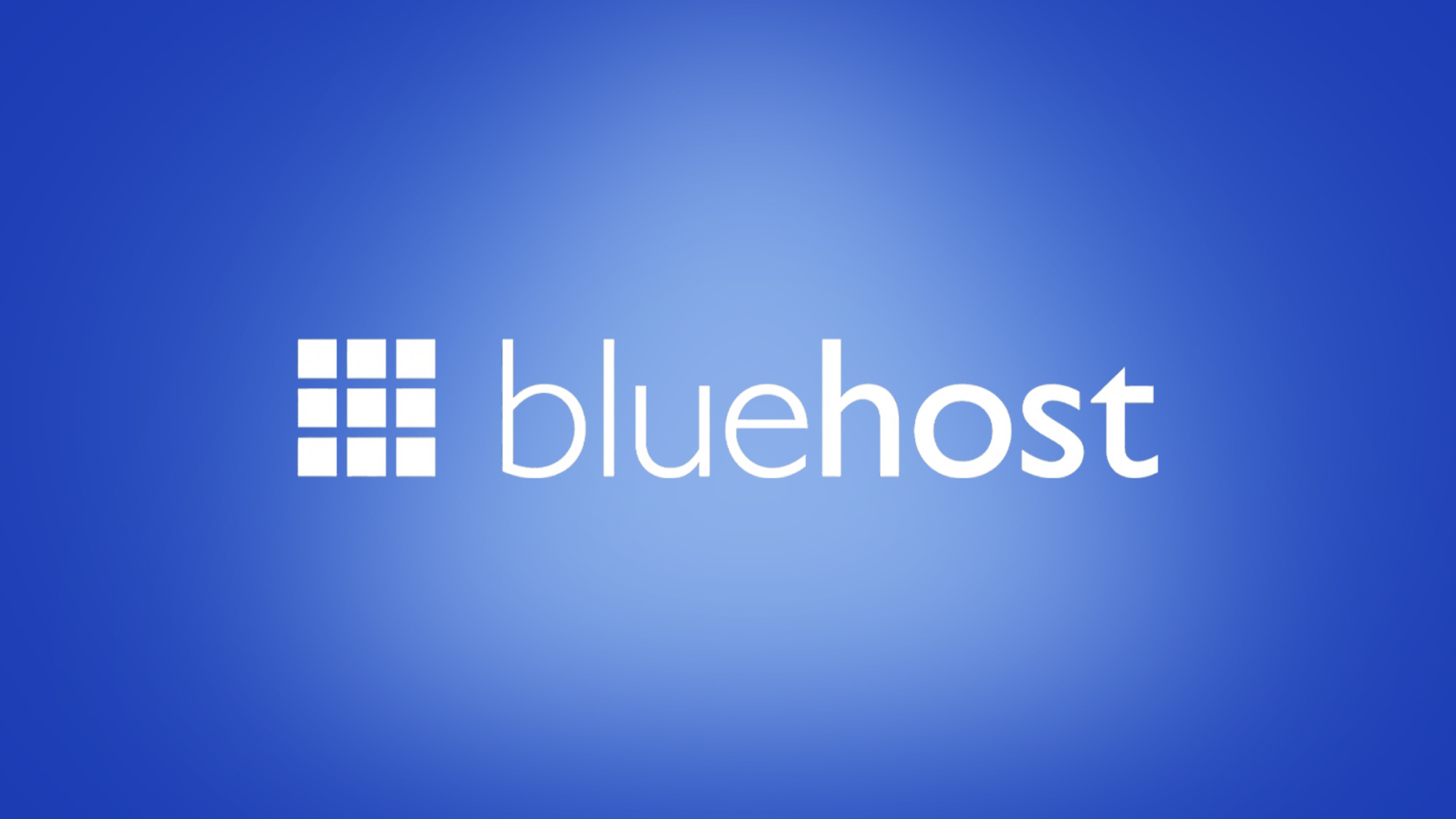Best email hosting services of 2025
These are the best email hosting services of 2025 tested by experts

The best email hosting service helps make your brand look more professional and helps you keep things organized. Nothing says I'm not fully committed to my business like receiving an email from businessname@gmail.com.
If you don't need a custom email address for a business there are plenty of features that anyone can take advantage of such as, larger inboxes, enhanced security, email routing, and organization tools like calendars and appointment scheduling.
If you decide you don't want want your own email service then you can opt for one of the best email providers instead.
Best for small business

Specifications
Reasons to buy
Reasons to avoid
Hostinger is one of the best cheap web hosting providers and is a force to reckon with when it comes to email hosting, too. Businesses of all sizes, but particularly small ones (including solopreneurs and folks who need a commercial email for personal use), will benefit from its affordable and feature-packed email plans.
There are two plans to choose from: Business Starter at just $0.99 per month per mailbox (on a 2-year term) for 10 GB of storage and Business Premium at $2.99 per month per mailbox (on a 2-year subscription) for 50 GB of storage. Additionally, the Starter and Premium plans have a daily limit of 1,000 and 3,000 outgoing emails, respectively, which is going to be more than enough for a small business.
It’s worth noting that both plans come with a whopping 50 email aliases, which you can link to your primary email account and use to sign up for potentially spammy websites and newsletters that you’re only going to use once. This will not only improve your privacy but also reduce clutter in your inboxes. Next, a higher-than-average 50MB file attachment limit embraces steady communication and ensures you can share files without hindrance.
There are no dearth of security features, either. You get built-in antivirus check, anti-spam, and two-factor authentication. Plus, thanks to support for IMAP and POP3 email protocols, you can access the service from other email apps if you prefer. Important quality-of-life features include the ability to set up automated OOO (out of office) messages and forwarding rules, read receipts, calendars and contacts, and more, depending on the plan you choose.
However, it’s worth noting that regardless of your plan, you can add just a single email domain. This is why Hostinger might not cut it for large organizations, which would be better off with ScalaHosting, as it offers up to an unlimited number of email domains.
We liked how Hostinger integrates AI into its website for a better customer experience. For instance, its chatbot is powered by AI and assists users in purchasing the most ideal plan for them, as well as answering common queries. Additionally, Hostinger’s customer support is top-notch, too, with access to helpful support agents 24/7 and in multiple languages. There’s also a generous 30-day money-back guarantee, meaning you can try it on for size risk-free.
- Read our full Hostinger review
- You could save on Hostinger products with our Hostinger promo codes.
Best for large businesses

Specifications
Reasons to buy
Reasons to avoid
ScalaHosting offers email plans tailored for medium and large-scale businesses right from the get-go. For instance, just its first plan offers up to 10 email boxes (at $4.95 per month total, so that’s just around $0.5 a month per mailbox) and 50GB of storage. Plans further up increases the number of email domains you can add, and it goes from 5 to unlimited, depending on your plan.
ScalaHosting’s highest-end plan ($14.95 a month on a 3-year plan), in our opinion, is hands down the very best for large businesses that want top-notch email performance and security. In addition to an unlimited number of email domains, you can also add as many email accounts as you want, plus you get improved inbox deliverability thanks to a dedicated IP address (so there are fewer chances of your emails being accidentally flagged as spam). It also comes with a free domain, free SSL, and scalable storage, meaning you can increase your server storage in just a single click.
That’s not all, though, as this plan doesn’t pull any punches when it comes to security, either. While the lower plans offer daily offsite backups and spam protection (which are both good offerings, especially for the price), the “Cloud” plan is one full step ahead with real-time malware protection, including 24/7 real-time cyber-security monitoring for malicious content and blacklist monitoring, which will prevent you from losing crucial email communication or getting deranked from Google.
All in all, the value for money on this plan is simply phenomenal. Needless to say, however, you’ll get great value on all the lower plans, too. For example, the “Medium” plan comes with 100 email accounts, 10 email domains, and a whopping 150GB of storage at a very reasonable $9.95 a month on a 3-year commitment.
The good news keeps coming, as ScalaHosting is also super simple to use. Accessing your email accounts is straightforward with ScalaHosting's user-friendly options, including webmail, desktop apps, and mobile apps using IMAP/POP.
- Read our full ScalaHosting review
Best affordable business email

Specifications
Reasons to buy
Reasons to avoid
Zoho Mail plans start at just $1/user/month (billed annually) and come with all business email essentials, including email forwarding, email aliases (up to 30 on each plan), and support for IMAP and POP for easy access from other email clients, as well as the ability to sync emails, calendars, and contact details across all your devices. Furthermore, you can manage up to 30 domains on a single account, but you will be required to pay per user.
Although the number of email aliases is fewer than Hostinger’s 50, up to 30 email domains leaves Hostinger in the dust when it comes to servicing businesses. Next, Zoho Mail’s storage is on par with industry standards, seeing as the Lite plan offers up to 10 GB per user and the Premium plan 100 GB (50 GB email storage and 50 GB retention storage) per user.
One of the highlights of the service is its huge file attachment limit. You can upload attachments of up to 250 MB on the Mail Lite plan and up to 1 GB on the Premium plan, which is priced at $4 per user per month. This makes Zoho Mail a go-to choice for businesses that regularly exchange large files, such as high-res photos and videos, over email. Just note that to be able to upload attachments of such massive sizes, you’ll have to upload them as links. However, by doing so, you'll also be able to set access permissions to control who can see them, which can prove handy for businesses with different departments and employee levels.
It’s worth noting that Zoho Mail is one of the very few reputable email services that offer a completely free plan. So, while it’s primarily a business-oriented email hosting service, we think it's also perfect for someone who just wants more from their email. The free plan can accommodate up to 5 users, comes with 5 GB per user, and has a 25 MB file attachment limit. Plus, just like the paid plans, it can be used on various devices, including desktop (web access) and mobile (through Zoho’s apps).
In addition to two dedicated email hosting plans, Zoho also has a Workspace plan, which comes with a comprehensive business communication suite, online office apps (presentation software, online file manager, spreadsheet, etc.), and, of course, business email. This is another area where Zoho stands out over the competition.
Additionally, we were also impressed by how quick Zoho resolved our queries. All we had to do was open the chat box on its website, enter our issue, and press Enter. A customer support agent replied back within 60 seconds. Lastly, Zoho Mail offers a 15-day free trial of the Premium plan (no credit card required) so that you can test it out live to see if it’s fit for your needs.
- Read our full Zoho Mail review
Best of the rest
Best for unlimited account creation

Bluehost email hosting
Our expert review:
Reasons to buy
Reasons to avoid
Bluehost blows the competition out of the water by allowing you to create an unlimited number of email accounts and manage an unlimited number of email domains right from its most basic plan priced at just $14.99 per year (or $1.25 a month).
Businesses will be able to scale their communication easily and at no extra cost since there’s no pay-per-user pricing model. For instance, ScalaHosting, which is the only other service on the list to provide unlimited email accounts and domains, does so only on its highest-end plan, at $14.95 a month.
However, it’s worth noting that while there are no official limitations on how many emails you can create, you will still be bound by the total file storage available on your account. This means that the storage of all the email addresses put together should not exceed the total hosting shortage.
Speaking of storage, the Professional Email plan offers 25GB of storage, whereas with Email Plus, you get a respectable 80GB. Overall, though, the storage space is admittedly less, so if that’s a deal breaker for you, we’d suggest you look at ScalaHosting or Zoho Mail.
Other features include basics, such as email aliases (25 and 50, respectively), email forwarding, and live sync across various devices, as well as a long list of niceties, like email filters, an ad-free experience, and one-click email and file encryption (this one’s only available on the Plus plan, though). What’s more, there are also filters for spam and phishing attacks and an antivirus to keep you safe from viruses, malware, and other cyber threats.
Before making your final choice, check out our latest Bluehost promo codes for to save on your purchase
- Read our full Bluehost review
Best for simplicity

Reasons to buy
Reasons to avoid
Better known for its top-notch web hosting services, DreamHost also has a compelling email hosting offering that’s worthy of attention. It offers just a single plan, at $1.67 per month per mailbox (billed annually) - or $1.99 per mailbox if you choose to subscribe on a month-on-month basis.
Although Dreamhost’s plan may seem pretty bare bones when compared to the competition, under the hood you’ll find almost everything you need from an email hosting service. This includes an above-average 25GB of storage, a 30MB file attachment limit, live sync across your desktop and mobile devices (as well as your tablet and smart watch, thanks to industry-leading IMAP support), and an ad-free webmail.
Additionally, you can set up and route messages to custom email aliases, configure automatic delivery filters anyway you like, and drag and drop emails between folders with ease. Your inbox won’t be left wanting for protection, either, thanks to inbound spam filtering that automatically adapts to emerging threats, including viruses, spam, and phishing attacks.
Customer support is good, too, with agents available 24/7 through live chat and email, and there’s also a comprehensive web knowledgebase where you can find quick solutions to your queries.
All in all, Dreamhost offers a simple yet well-rounded email hosting service that will impress most users, but it’s admittedly better suited to users who subscribe to one of its web hosting plans rather than businesses looking for a standalone email service.
- Read our full DreamHost review
How to choose the best email hosting service for you
Email has been the backbone of internet communication for decades now and finding the best email hosting service is essential to ensure communication and organization. To pick the right one in the sea of similar solutions, you'll want to consider some of these factors.
First and foremost, prioritize safety and security. Emails often contain sensitive information, which makes it critical to choose a hosting service that can protect your data against potential cyber threats. Some security measures you should look for in an email hosting service are strong encryption, spam filtering, and advanced malware protection.
The next step is to decide how you want to host your email. You have various options here, including third-party email hosting, shared web and email hosting, or even self-hosted email. Third-party hosting provides dedicated email services with specialized features, while shared hosting offers a more cost-effective solution that combines web and email hosting. Meanwhile, self-hosted email provides full control but requires technical know-how and maintenance.
Another important factor to consider is flexibility. The ability to adjust email configurations, manage user accounts efficiently, and integrate with other business tools is a must. So, opt for a service that allows you to customize your email settings to suit your needs.
Additionally, ensure the hosting service offers round-the-clock, multi-channel customer support that will solve any issues promptly, ensuring smooth email operations.
Next, check available storage space and promised uptime. Look for an email hosting service that provides ample storage space, allowing you to keep all your data in one place. Also, an option to automatically move old messages to an archive can help you keep your inbox clutter-free. As for uptime, a respectable email host should guarantee at least 99.9% uptime, ensuring uninterrupted access to your emails.
Apart from the above factors, check out user reviews and the reputation of the hosting service. A reliable and reputable email hosting service should have positive reviews and a proven track record of providing rock-solid services.
How we test the best email hosting services
Why you can trust TechRadar
How we test the best email hosting services
Focusing on the main features we pointed out above, we test email hosting providers by signing up to each service and testing out the flexibility, availability, support and security aspects of the product.
A good quality email hosting provider would be able to meet all your needs in these areas and would offer some sort of 24/7 customer support should you need extra assistance when things go wrong or you have a query about the service.
We also test some of the bonus features that email hosting services provide to improve your business performance. We also test the sending limits each provider sets in order to see the number of files and attachments you're permitted to send. Some email hosting providers come with file-sharing tools if you want to send much larger documents.
Read more on how we test, rate, and review products on TechRadar.
Best email hosting FAQs
What is email hosting?
Email hosting is a service where a provider rents out email servers, offering a personalized and professional approach to email communication. It's something like having a dedicated space for your emails in the digital world. While there are completely cost-free email hosting packages, with premium service you'll get more power, flexibility, and professionalism.
Unlike using public domains like Gmail, email hosting lets you create a unique email address using your domain name, aligning it with your website. It's a powerful tool that can be utilized by individuals and businesses alike.
Different types of email hosting services cater to different needs. Shared hosting email services provide spacious mailboxes hosted on a server, best for businesses with common server resources. Meanwhile, cloud email services are ideal for small companies, outsourcing email management to cloud service providers like G Suite and Microsoft Exchange.
For larger entities, enterprise email solutions come into play. They can host multiple mailboxes, residing either on dedicated servers on-site or scalable cloud-based servers.
What is the difference between email hosting and web hosting?
While both email hosting and web hosting involve hosting services, they don't serve the same purpose.
Email hosting takes charge of your email communications, providing a dedicated space to manage and organize all your messages. However, it goes beyond custom email addresses and extends to security mechanisms like strong encryption and spam filtering, shielding sensitive data. Plus, it ensures you never run out of space with ample storage for emails and attachments.
On the other hand, a web hosting service is the foundation of your online presence, housing your website's files and making it accessible on the Web. Although some web hosting plans might bundle basic email services, specialized email hosting focuses on elevating your communication experience.
With features that'll streamline email management, enhance security, and add scalability, specialized email hosting becomes the strategic choice for businesses that want to optimize their email communication strategy.
What should you look for in an email hosting package?
If you want to host email accounts together with your website, then you should look at these email features before signing up.
1. Number of email accounts and control panel
Most hosting providers offer the option to host personalized email accounts under your domain name (something like „email@yourdomain.com“). Make sure the hosting package provides an adequate number of email accounts to cover your needs. You should also gain access to an email control panel, allowing you to seamlessly set up and manage your accounts.
2. Email server and client
It's important to understand the roles of the email server and client. The email server, residing on the hosting provider's server, constantly connects to the internet to process incoming and outgoing emails. In the meantime, email clients like Microsoft Outlook or web-based alternatives like Gmail provide the interface through which you access, send, and organize your emails.
3. Webmail convenience
Webmail is a web-based email interface accessible through browsers, offering speed and enhanced ease of use. It directly accesses stored data without requiring local software installation, which makes checking emails easy across devices with internet access.
4. Email protocols - POP and IMAP
Email protocols dictate how your email client communicates with the server. POP (Post office protocol) downloads emails to your device and removes them from the server. IMAP (Internet message access protocol) keeps emails on the server, enabling access from multiple devices with consistent data synchronization.
5. IMAP vs. Exchange
Although IMAP meets most needs, consider Exchange if you're ready to invest in further functionality. Exchange, a Microsoft protocol, allows task synchronization and offers the ability to share contacts and calendars among employees. This top-notch option comes with an extra cost but supplies superb collaboration tools.
6. Advanced tools and mobility
Exchange isn't the only solid choice for advanced tools. Some providers offer enhanced features like calendars and task management even with IMAP. If mobility is crucial, Exchange stands out for its on-the-go functionality, allowing you to access your synchronized tasks, contacts, and calendars without a hitch.
To sum everything up, when comparing email hosting packages, consider factors like the number of email accounts, ease of setup, webmail convenience, and synchronization capabilities. Also, consider the benefits of advanced options such as Exchange. Your choice should ensure seamless communication created for your specific business needs.
What is DKIM?
By: Peter Goldstein, chief technology officer and co-founder, Valimail
DomainKeys Identified Mail, also known as DKIM, is an email authentication protocol that describes how organizations can use public-key cryptography to securely sign messages and enable recipients to confirm that messages originated from intended senders and were not altered in transit.
Public-key cryptography is based on an encryption technique that involves a pair of keys—one is kept private by the owner of the keys and the other is public for all to see. Within public-key cryptography, it’s common for the owner of the private key to digitally sign a message and then anyone can verify that signature using the signer’s public key. DKIM relies on this signature technique.
How DKIM works
At a basic level, DKIM works as follows:
Advantages of DKIM
DKIM’s primary advantage over Sender Policy Framework (SPF)—its predecessor in the email authentication space—is that it is designed to preserve authentication through forwarding.
SPF is IP–based, so any message that routes through an intermediary is likely to fail SPF checks since the originating domain probably didn’t include (and likely shouldn’t have included) the intermediary IP address in its SPF record.
Because of DKIM’s cryptographic signatures, recipients can also be assured that forwarders did not alter the message in transit. This prevents malicious behavior from forwarders who may not be known to either the initial sending system or the receiving system.
DKIM alone is not enough
DKIM with Domain-based Message Authentication, Reporting and Conformance (DMARC) will achieve a far greater level of protection. That’s because DMARC requires alignment, meaning what is validated by DKIM must also match what appears in the “From” field of the email. Together with DMARC, DKIM is an important element of a fully-fledged anti-spam and anti-phishing solution.
We've also listed the best cloud hosting providers and the best web hosting services on the market
Are you a pro? Subscribe to our newsletter
Sign up to the TechRadar Pro newsletter to get all the top news, opinion, features and guidance your business needs to succeed!
Krishi covers buying guides and how-to's related to software, online tools, and tech products here at TechRadar. Over at Tom's Guide, he writes exclusively on VPN services. You can also find his work on Techopedia and The Tech Report. As a tech fanatic, Krishi also loves writing about the latest happenings in the world of cybersecurity, AI, and software.
- James CapellB2B Editor, Web Hosting